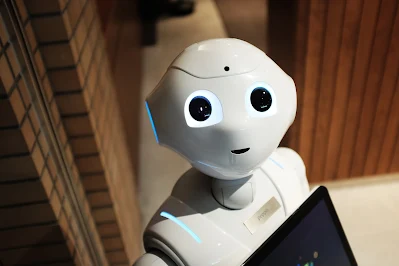Artificial intelligence is set to change the world of work, but can it be stopped?
The answer is no, and here's why. Our research shows that AI will take over nine in ten new jobs by 2030. But it also shows that this will create as many or more new jobs than it destroys. With the rise of AI technologies and machines, demand for knowledge workers will grow exponentially and they are growingly required to have a high level of education.
Also Read: What is Synthetic Data?
Jobless Future: what is the future of the job market?
The future of the job market is a topic of much debate. Some believe that the rise of artificial intelligence will lead to a jobless future, while others believe that there will be new opportunities for those who are willing to reskill and upskill.
Those who believe that the rise of artificial intelligence will lead to a jobless future point to the fact that many jobs are already being replaced by machines.
For example, ATMs have replaced tellers in banks, and self-checkout machines have replaced cashiers in grocery stores. As artificial intelligence becomes more advanced, it is likely that even more jobs will be replaced by machines. This could lead to mass unemployment, as there are simply not enough jobs for everyone.
Those who believe that there will be new opportunities for those who are willing to reskill and upskill point to the fact that this has always been the case throughout history. As technology has progressed, new jobs have been created to replace the old ones.
For example, when the automobile was invented, jobs were created for mechanics and assembly line workers. Similarly, when computers were invented, jobs were created for programmers and software developers. As artificial intelligence progresses, it is likely that new Jobs will be created for those who are able to work with this technology.
Reskilling and upskilling: How can you prepare for this rise in Artificial Intelligence?
In recent years, there has been a rapid rise in the use of artificial intelligence (AI) and machine learning across a broad range of industries. This has led to fears that many jobs will soon be replaced by AI-powered machines. However, it is also possible that this rise in AI will create new job opportunities for those who are willing to reskill and upskill themselves.
So, what exactly is reskilling and upskilling? Reskilling is the process of learning new skills to replace those that are no longer relevant or in demand. Upskilling is the process of learning new skills to supplement or improve upon existing ones. Either way, both processes can help you stay ahead of the curve when it comes to the ever-changing world of work.
When it comes to preparing for a future with more AI, there are a few key things you can do:
1. Stay up to date on the latest trends: Keep tabs on advancements in AI and machine learning so you know which skills will soon be obsolete and which ones will be in high demand. There are numerous online resources you can use for this, such as blogs, podcasts, and online courses.
2. Learn how to code: Coding is becoming increasingly important as more companies look to automate their processes with AI. Even if you don’t want to become a programmer, learning some basics can give you a better understanding of how AI works and how it can be used within your industry.
Conclusion
The rise of artificial intelligence is a cause for concern for many people, who fear that they will lose their jobs to robots in the future. However, there are also plenty of reasons to be optimistic about the impact of AI on the job market. With the right reskilling and upskilling, people will be able to take advantage of new opportunities created by AI and remain employed in the future.












No comments:
Post a Comment